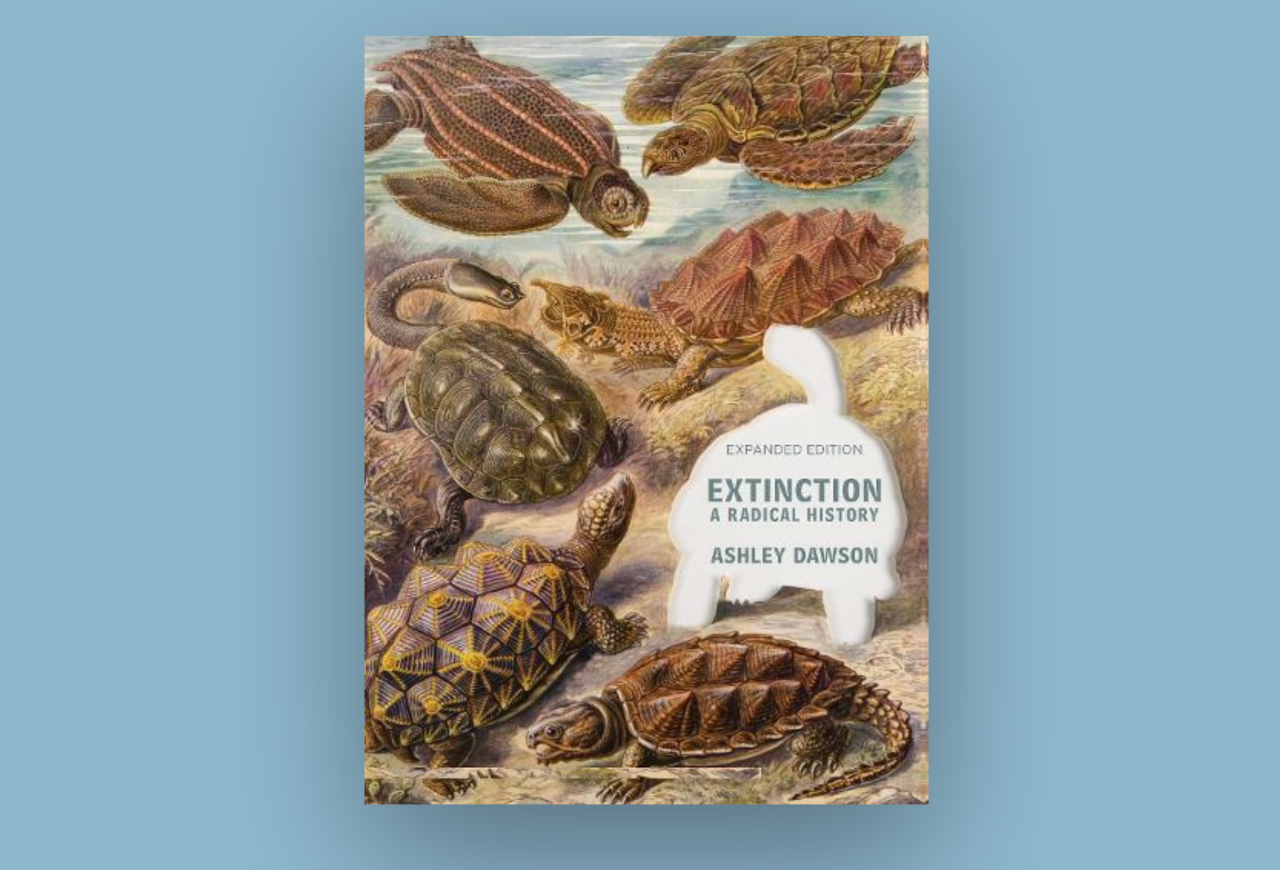In this book, the author presents a critique of the current economic system and its devastating impact on biodiversity. But his “anti-capitalism conservation movement” is too fantastical to have merit, writes Christopher Walker

In brief
· “Humanity lives amid, and is the cause of, a massive decimation of global biodiversity.”
· But Dawson co-opts the biodiversity crisis as a welcome catalyst for revolution that will sweep away the real evils of the planet – colonialism and capitalism.
· As such, sustainable and impact investing is certainly in his sights, along with the entire conservation and rewilding movements.
· But his own solution of an “anti-capitalism conservation movement” is too fantastical to have merit.
If you needed convincing just how far some elements of academia have moved to the left, then read this work by Ashley Dawson. He is a professor of English at CUNY, New York City, and a prophet of the anti-capitalist conservation movement.
He notes that “researchers generally agree that the current extinction rate is nothing short of catastrophic. The Earth is losing about a hundred species a day.” A “tidal wave of extinction, which conservation biologists predict will eliminate up to 50 percent of currently existing animal and plant species…threatening the functioning of entire ecosystems and…imperilling our own tenure on this planet.”
But one rather fears Dawson is secretly pleased, as this in turn will lead to another extinction which he would welcome. He hopes proof of the “ecocidal” nature of capitalism will lead to its overthrow.
The evils of capitalism and colonialism
The author quotes Marx, “capital is the endless and limitless drive to go beyond its limiting barrier”, and relishes that “these dynamics of capitalism… are particularly starkly evident when seen through the lens of extinction”.
By fecklessly consuming the environment, capital is “sawing off the tree branch it is sitting on.” The author seems rather excited and even references “the bourgeoisie” – a quaintly nineteenth century term confined to academia.
Colonialism is capitalism’s partner in crime. Thanks to it “well-adapted agricultural practices were replaced by cash crops grown for export to the imperial metropole. Indigenous peoples were displaced, and slaves were imported to work the land, generating a brutal system of hitherto unequalled exploitation”.
Conservation
Dawson dismisses conservation efforts that “largely fail to address the deep inequalities that capitalism generates” and is highly critical of most international agencies”.
In his opinion, the Nature Conservancy, the World Wildlife Fund, the Natural Resources Defence Council, and Conservation International are all “based on neoliberal principles of unrestrained hyper-capitalism.” The result has been “a steeply intensifying deterioration in global ecosystems, including a massive increase in the rate of extinction”.
The author sees a big North/South planetary divide because the “US debt imperialism is based on the extraction of capital from vassal nations through the imposition of crippling structural adjustment policies by organizations like the International Monetary Fund and the World Bank”.
Attack on sustainable investing
Inevitably this line of thinking leads to an attack on sustainable and impact investing. “The climate change crisis has unleashed a fresh round of accumulation, obscured by upbeat language about the investment opportunities opened up by the green economy.”
Some of these criticisms have some merit. “Neoliberal solutions to the climate crisis such as voluntary carbon offsets are not only failing to diminish carbon emissions but are also dramatically augmenting the enclosure and destruction of the global environmental commons.”
According to the author, such programs allow polluting industries in wealthy nations to continue emitting carbon, while turning the forests and agricultural land of indigenous people and peasants in the global South into carbon dioxide “sinks” or biodiversity “banks”.
As Dawson sees it, under the green economy, vast numbers of people, plants, and animals are being sacrificed as collateral damage in the “ecocidal” exploitation of the planet. “Capitalism, it is clear, cannot solve the environmental crises it is causing.”
Solutions
But the author’s proposed alternatives are a very thin gruel, with many proposals lacking credibility.
Companies like Exxon Mobil are “guilty of crimes against humanity” and their assets should be seized. “Forums for enclosure” such as the UNFCCC’s Business and Biodiversity Initiative “must be recognized for what they are and shut down”. He writes: “We must reject capitalist biopiracy and imperialist enclosure of the global commons, particularly when they cloak themselves in arguments about preserving biodiversity.”
Sweeping all this away, the author introduces the idea of “climate debt” – the biodiversity debt owed by the wealthy nations of the global North to the South. He calls for a universal guaranteed income for inhabitants of nations who are owed climate debt.
“Where would the capital for such a guaranteed income program for biodiversity hotspots come from?” the author asks. Well, we can guess. “The 1% have accumulated their increasingly massive share of global wealth by siphoning off collectively produced surpluses not through hard work but through financial machinations such as dividends, capital gains, interests, and rent.”
“If you want to think about why humans are so dangerous to other species, you can picture a poacher in Africa carrying an AK-47 or a logger in the Amazon gripping an ax, or, better still, you can picture yourself, holding a book in your lap.”
Well, certainly if it is Professor Dawson’s book.






